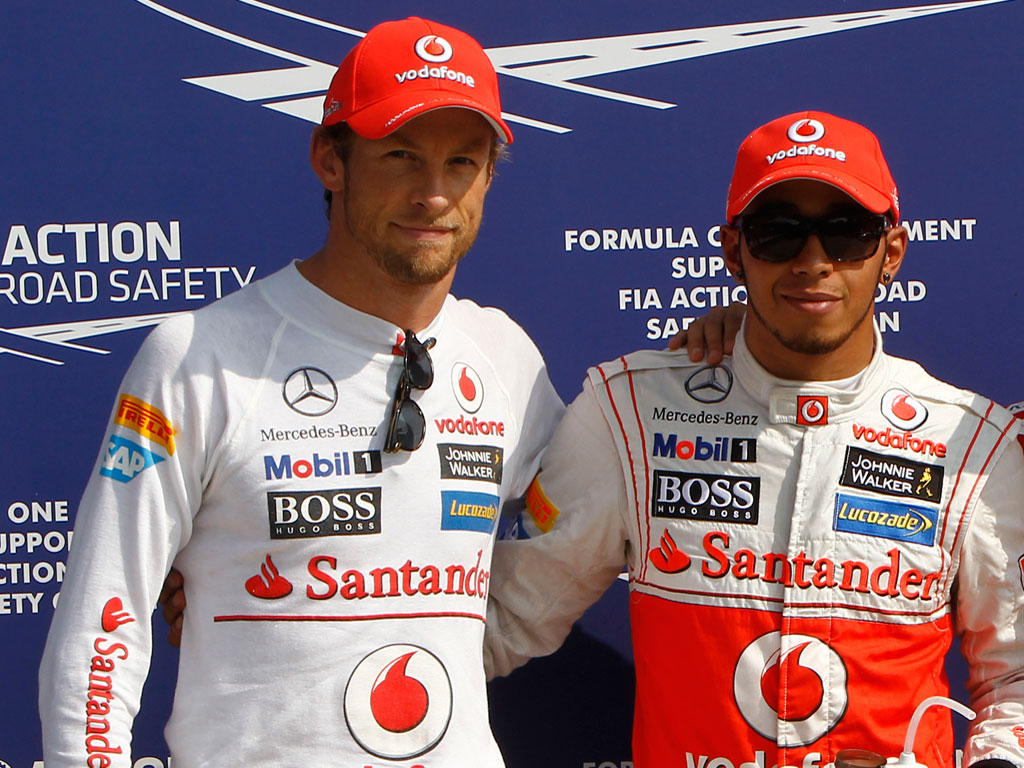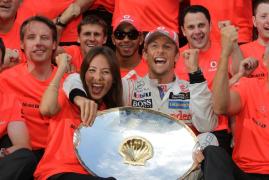Although Jenson was a world champion in 2009 with Brawn, there is a persistent feeling (especially in Britain) that Jenson Button, now apparently primed for Gran Turismo racing, could have made so much more of his F1 career. Even non-British F1 fans reserve some degree of pity for Button, who made his debut at the Australian Grand Prix of 2000. Unbeknownst to those watching across the globe, the inaugural Grand Prix of the new decade would be the first chapter in Michael Schumacher’s impending dominance of the sport. The German, ever resplendent in Ferrari scarlet, was about to embark on a title-winning streak of five championships. There would be no story of a young British upstart defying the odds on his debut. Jenson Button, along with every other driver on the grid, could do nothing as Schumacher won by >11s at Albert Park, heading a hugely predictable Ferrari 1-2 with Rubens Barrichello in his familiar second place.

If one-time British championship winners are judged based on the average number of points their new constructor gained after transferring to them, Jenson Button is the third-best, alongside giants of the past.
The ides of March 2000
As a scant consolation, Button at least managed nearly thrice the number of laps the other three British drivers cobbled together. Button had also shown very real signs of promise, despite knowing that he was merely going through the motions, and his first F1 points would arrive in the second race of the season, at Interlagos – a place Button remembers with particular fondness. For a debutant to finish eighth in a final table dominated by Ferrari and McLaren-Mercedes was widely seen as an honourable feat. As recalled by BBC Sport, a fourth-place finish at Hockenheim was Button’s best result of the 2000 championship. He also earned significant plaudits for finishing fifth at the notoriously difficult Suzuka circuit, in the penultimate race of the season, on the back of two consecutive retirements.
Button’s move to Benetton-Renault in 2001 precipitated a sharp downturn in form. Unable to emulate his performances of the previous year, Button scored points only once, after finishing fifth at Hockenheim. Button had the added obstacle of being ‘second fiddle’ behind Giancarlo Fisichella, who also shared a designated nationality with the constructor. In 2002, Renault broke away from Benetton, seeing Button instead paired with Jarno Trulli, and racing for a constructor now representing France. The expected resurgence of Button duly came, and the man from Somerset once more finished in the top ten of the final table. It was, however, Button’s move to Lucky Strike BAR Honda in 2003 that proved his making. After finishing third in the standings in 2004, there was real hope that Button could build on such a strong showing. However, it was not to be. He remained without silverware, and in 2007, along came the young British upstart the world had been waiting for.
Hamilton’s arrival cements Button’s fate
 Part of a superlatively ambitious project by Vodafone McLaren Mercedes, 22-year old Lewis Hamilton was drafted in alongside reigning double champion Fernando Alonso. His impact was immediate, with the rookie scoring (as recalled by Bleacher Report) 109 points. Today, even with Sebastian Vettel in hot pursuit of the 2017 title, Lewis Hamilton is a rampant 1/7 favourite to win the championship (according to betting site Betway), representing a stark reflection of the esteem in which he has always been held. Given his far richer history of success, it is no surprise that Hamilton’s fame eclipses that of Button. However, it was Button himself who famously wrested the title from Hamilton the following year. Although Button’s championship win could be dismissed as a mere flash in the pan, it has still left many wondering where, in real terms, he truly stands amongst fellow British champions.
Part of a superlatively ambitious project by Vodafone McLaren Mercedes, 22-year old Lewis Hamilton was drafted in alongside reigning double champion Fernando Alonso. His impact was immediate, with the rookie scoring (as recalled by Bleacher Report) 109 points. Today, even with Sebastian Vettel in hot pursuit of the 2017 title, Lewis Hamilton is a rampant 1/7 favourite to win the championship (according to betting site Betway), representing a stark reflection of the esteem in which he has always been held. Given his far richer history of success, it is no surprise that Hamilton’s fame eclipses that of Button. However, it was Button himself who famously wrested the title from Hamilton the following year. Although Button’s championship win could be dismissed as a mere flash in the pan, it has still left many wondering where, in real terms, he truly stands amongst fellow British champions.
Though Jenson Button’s ultimate fate is to be eternally eclipsed by Lewis Hamilton in F1 lore, those who refuse to look beyond the glories won by a driver will do well to reserve a lot more admiration for Button. As resounding as Brawn’s impact was in 2009, it could just as easily have been disastrous. F1 is never easy to adapt to, as evidenced by Haas’ struggle to meaningfully threaten the current ‘top three’ (Mercedes, Ferrari and Red Bull) after the debuting in 2016. Though he is little more than a cameo driver these days, Button’s story cannot fail to inspire future drivers, who may find themselves perennially overshadowed from debut to retirement. The next ‘Brawn’ may be a long time coming, but come it must, with Mercedes looking ever more unstoppable as a new decade approaches.
✅ Check out more posts with related topics:













